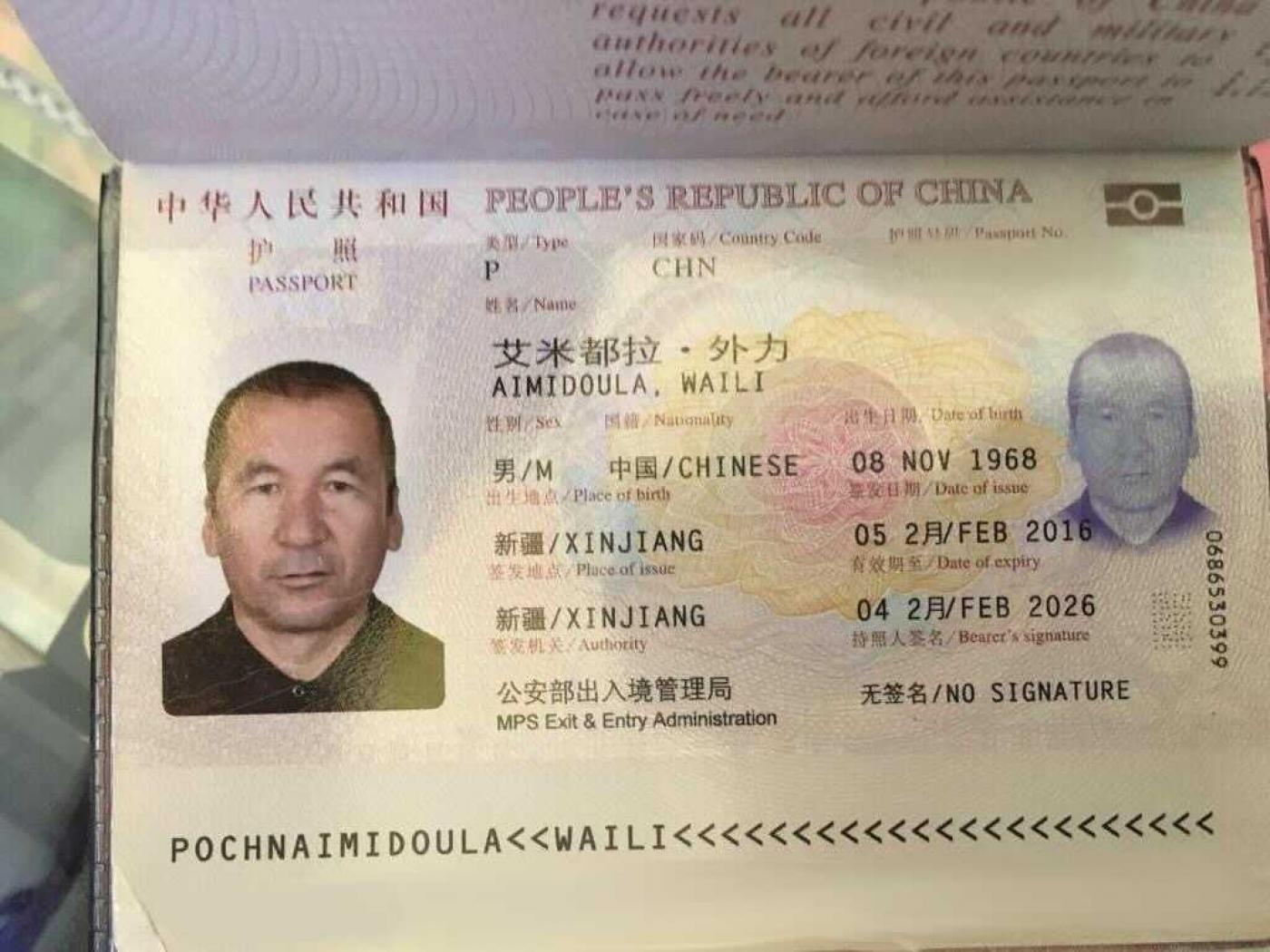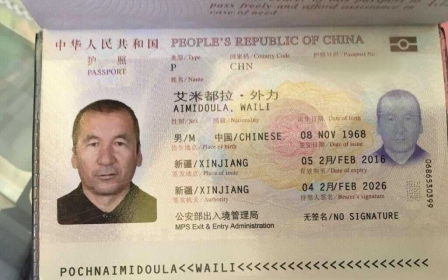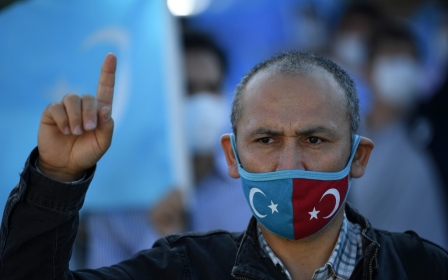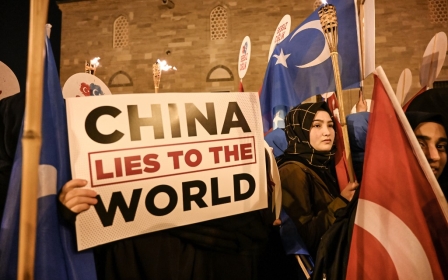Uighur scholar arrested in Saudi Arabia at risk of deportation to China

A Uighur Muslim religious scholar was arrested in Saudi Arabia on Friday amid fears that he could be deported back to China.
Activists fear that Aimadoula Waili, also known as Hemdullah Abduweli, who originates from the Xingjiang province in China, will be sent back to his home country following his arrest in the Gulf kingdom.
Uighur activist Abduweli Ayup has raised concerns about Waili's arrest, saying that if he is deported, he could face a lengthy prison sentence in China.
Earlier this month, Waili told Middle East Eye that he feared for his life after the Chinese consulate in Saudi Arabia had allegedly requested his deportation.
Ayup told Middle East Eye on Monday that Waili was arrested at 8pm on Friday along with another Uighur, Nurmemet Rozi, and has only been able to speak to his wife over the phone since his arrest.
According to reports, Waili is being held in the Buraiman prison in Jeddah with no charges against him.
"Abduweli called his wife and told her that he was in danger and that she should take action. His wife then called me and told me that Saudi state security had arrested him and that she is trying to contact lawyers," Ayup said.
"There are no official charges against him, and he doesn't have any criminal records in Turkey or Saudi Arabia."
Waili went to Saudi Arabia in February this year to perform the Umrah pilgrimage from Turkey, where he was residing, and has stayed in Saudi Arabia since then.
According to Ayup, Waili was targeted as he is an influential religious scholar and was previously arrested in Xinjang in 2013 and 2014 for his preaching.
Ayup said that because of Waili's record as a political prisoner in China, the government has continued to harass and pursue him abroad.
"Saudi Arabia is very important to Uighurs because Mecca is there, and our people can't stop going there because of that. How can Saudi Arabia uphold its reputation as the protector of the holy sites when they can't protect Uighurs?" Ayup asked.
"Saudi Arabia should not be two-faced. They should openly state if they can or can't protect Uighurs."
Rozi, a 44-year-old Uighur businessman who was arrested alongside Waili, had also arrived in Saudi Arabia in February to perform the Umrah pilgrimage.
According to Ayup, he has been arrested for helping Waili by giving him a mobile phone and helping him contact activists and Uighur organisations.
G20 host
Maya Wang, a senior China researcher at Human Rights Watch, raised concerns about the arrest of the two individuals.
"Saudi Arabia, currently hosting the virtual G20 summit, should not deport the duo to China, where they would be tortured and disappeared... doing so would violate international human rights laws," she said in a statement on Twitter.
"For a leader of the Muslim world to arrest a Uyghur religious scholar - while on pilgrimage to Mecca - and possibly deporting him to Xinjiang, where the authorities are persecuting Uyghur for being Muslims, is really shocking," she added.
Wang has also called on authorities to immediately disclose Waili's status and ensure that he is not deported to China.
The Uighurs total about 10 million people in their home province - a number that is increasingly being outnumbered by ethnic Han Chinese who have settled in the region.
At least one million Uighurs are said to be held in internment camps where they are undergoing political "re-education," while the region itself is under intense and intrusive surveillance.
In October, a BBC report found that some Uighur Muslims who fled China and sought refuge in Middle Eastern countries have been arrested and deported.
BBC's Newsnight said it had identified multiple cases of exiled Uighur students and pilgrims being targeted by authorities in Muslim-majority countries - including Saudi Arabia, the United Arab Emirates and Egypt - in collaboration with Beijing.
Middle East Eye propose une couverture et une analyse indépendantes et incomparables du Moyen-Orient, de l’Afrique du Nord et d’autres régions du monde. Pour en savoir plus sur la reprise de ce contenu et les frais qui s’appliquent, veuillez remplir ce formulaire [en anglais]. Pour en savoir plus sur MEE, cliquez ici [en anglais].




